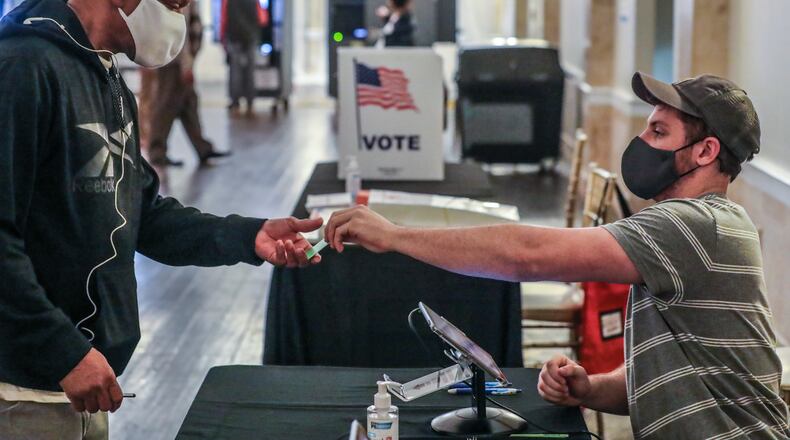Metro Atlanta voters overwhelmingly approved penny sales taxes to pay for school improvements across the region.
With all precincts reporting, the E-SPLOST, or education special purpose local option sales tax, passed in Fulton County with just over 70% of the vote. The revenue will be shared between Atlanta and Fulton County school districts.
DeKalb County voters also extended the funding measure, which will help the DeKalb County, Decatur and Atlanta school systems pay for projects. More than 80% of DeKalb voters supported the E-SPLOST.
Cobb County voters also agreed to extend the tax for another five years, with 72% in favor.
The E-SPLOST uses a one-cent sales tax to raise funds for school systems. The tax money is the main way districts pay for building renovations, construct new schools and upgrade technology. The revenue can only be spent on capital projects and can’t be used for salaries.
The Fulton County Schools’ E-SPLOST is expected to raise just over $1.2 billion over five years.
The Fulton system budgeted about a quarter of that on technology, including individual computers and tablets for children in third through 12th grade, plus carts stocked with devices for younger classes.
John Martin, who along with Beth Harris led a campaign to support the Fulton proposal, said the sales tax paid for student computers during the COVID-19 pandemic. The extension will allow the district to continue to update technology, he said.
“Now we are able to actually move the ball forward and teach in different ways because everybody has a device,” said Martin, the parent of a Roswell High School student.
About half of Fulton’s budget, or nearly $650 million, is earmarked for facility improvements. The district plans to replace three schools with new buildings: S.L. Lewis Elementary School, Camp Creek Middle School and North Springs High School. Officials also plan to either replace or reconfigure Holcomb Bridge and Haynes Bridge middle schools.
A portion of the more than $17 million set aside for transportation will be used by Fulton to continue to replace its fleet of diesel buses with buses powered by propane.
The Cobb County School District expects to bring in $895 million. The district plans to spend the money on rebuilding Sprayberry High School, a new elementary school in the southern part of the county, a second career academy in the northern part of the county and improvements and additions to several schools and athletic facilities.
Marietta City Schools is planning for a revenue of $71 million, which would be spent on renovations at Marietta Center for Advanced Academics and Hickory Hills Elementary, West Side Elementary, Sawyer Road Elementary and Marietta High School. The district also expects the tax to fund athletic improvements at Northcutt Stadium and technology upgrades.
Atlanta Public Schools expects the sales-tax extension to generate just over $650 million in five years.
The plan calls for spending $146 million on construction and renovation projects and spreading that out over 10 sites. Of those, a $27.7 million addition slated for Peyton Forest Elementary School is the largest expense.
The money also would be used to expand bleacher seating at 10 high school athletic stadiums and upgrade five high school theaters. Technology, transportation and security improvements are also planned.
The DeKalb County School district estimates it will gain almost $743 million from its tax renewal but does not have a project list because a comprehensive master plan is still in the works. However, the district said the money would be spent on new and improved facilities, technology and vehicles, including buses.
City Schools of Decatur estimates nearly $41 million in revenue. The money will pay for a general list of new construction projects, renovations, technology and security system upgrades, new roofs and utility systems, school buses and other vehicles.
Keep Reading
The Latest
Featured




